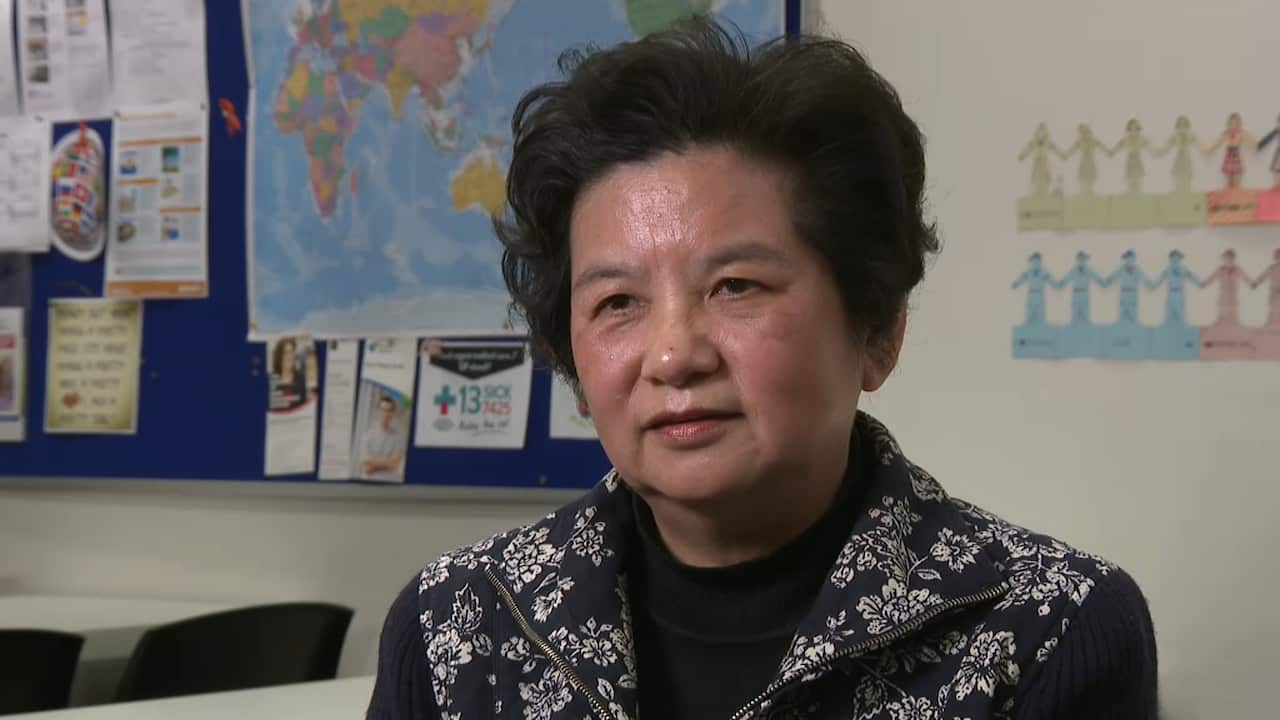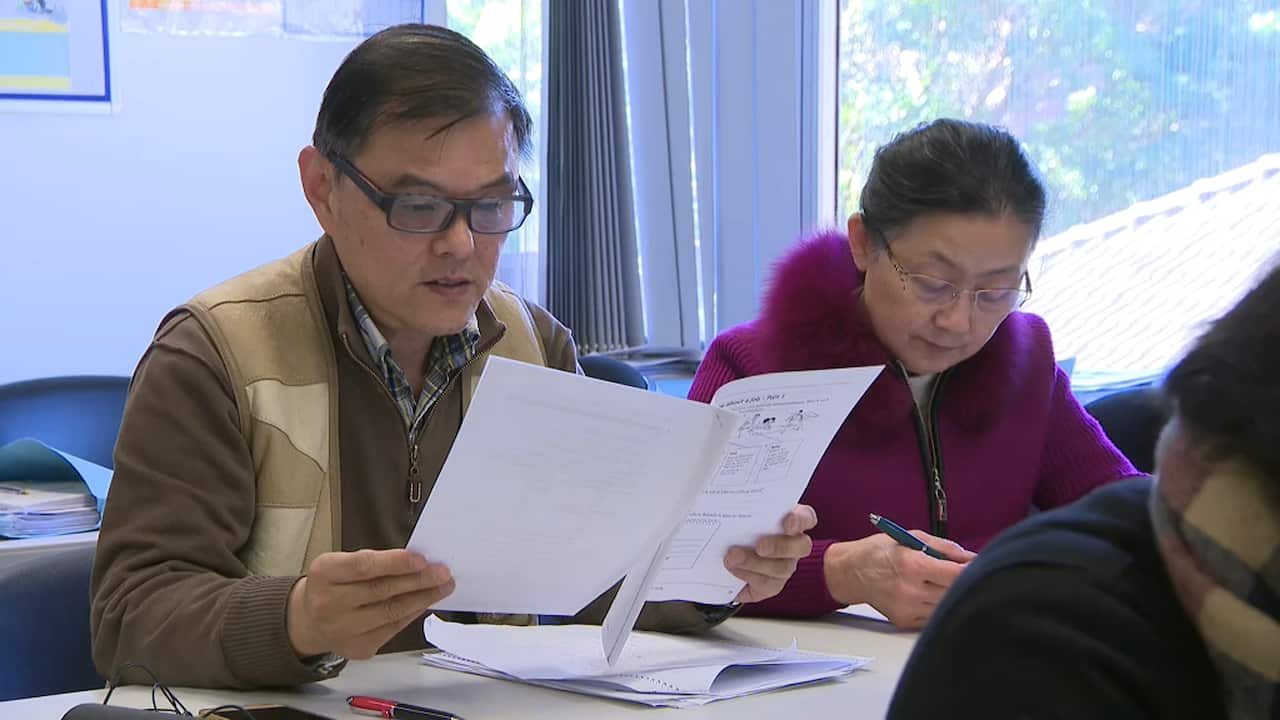During this year's Adult Learners' Week (1-8 September), education advocates are calling on the government to develop a national education strategy that better meets the needs of older learners.
Census statistics released in 2017 revealed the number of over-65s in the Australian workforce had increased from nine per cent to 14 per cent in a decade, with the largest increase seen among women.
It has prompted calls for more ongoing education and training for older people.
Education for all
At 64, Fang Fang Zhong isn't ready to retire. She told SBS News she is gearing up for a new career in community care.
“I think I can do home care. I like driving, I think I can help elderly people, such as with shopping for food and seeing the doctor,” she said.

After arriving in Australia in 1995 from China, Ms Zhong spent years working as a kitchen hand and a cleaner, fitting in English language study when she could.
With her children now grown up, she is giving learning another go through the government's Skills for Education and Employment program run by Social Enterprise MTC Australia.
She described her Sydney course as a gift from the Australian Government.
“I am so grateful that I come here. I can make friends, new friends that we can talk about something and the teacher is very kind.”
In 2006, just four per cent of women over the age of 65 were working, jumping to 9 per cent in 2016. By 2056, an expected 22 per cent of the Australian population will be aged over 65.
Generation gap
Chief executive officer of advocacy group Adult Learning Australia, Jenny Macaffer, said Australia had been slow to look at the implications of a rapidly ageing population - including the need for older workers to update or learn new skills.
“There is no coordinated framework, which is why Adult Learning Australia is calling for a national life-long learning policy so we consider all age groups and generations across Australia.”

Ms Macaffer said older people in particular had a lot to contribute to the wider community and the workforce.
“I think there is a real loss of human capital and community capital when we don't consider the value of older people in our communities. So some of them do want to stay in the workforce and others want to return to the workforce but there are a lot of limitations on them to do that.”
Many job-related programs, such as the one attended by Ms Zhong, are only available to eligible job seekers registered with Centrelink.
Ms Macaffer said there is also a gap in affordable study options, to meet increasing demand from older learners.
“There are also limitations in the amount of access that people can get to learning. That is why we think local learning opportunities in the community which are accessible and affordable are important for older learners and older people.”
Population pressure
In its 2017 World Population Ageing report, the United Nations said older people are making up a growing share of the population in virtually every country.
The United Nations said in response some governments are seeking to increase retirement ages, eliminate age barriers in the formal labour market, and promote policies that encourage recruitment as well as more flexible workplace arrangements.
And research shows ongoing learning isn't just good for the economy.
Professor Chris Davis from The MARCS Institute at Western Sydney University told SBS News researchers can now measure just how beneficial learning for work or leisure can be for brain function.
“We do know from functional magnetic resonance imaging (fMRI) that the volume of the brain, especially the hippocampus - that bit involved in memory - is maintained when you are involved in cognitive and social activities," he said.
For Ms Zhong though, learning is also about achieving a goal.
“I have got free time. I would like to fulfil my dream, I want to try," she said.

